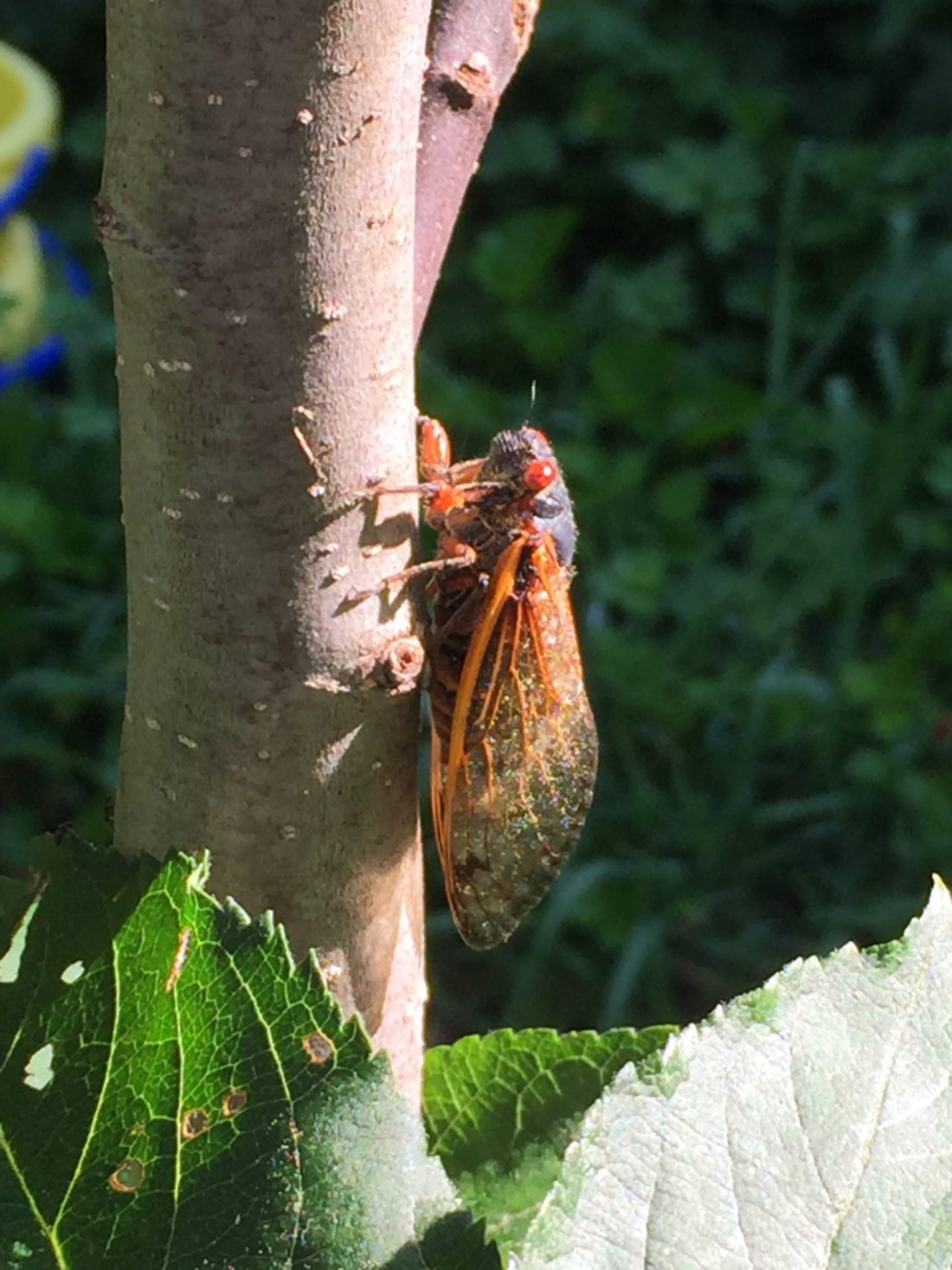With longer days, butterflies aflutter and trees in full leaf, signs that summer is slowly settling into the mountains of Western North Carolina are all around us.
Adding to those cues this year, however, is the historic emergence of not one but two broods of periodical cicadas — an insect native to North America and known for its rather loud mating song that permeates a summer evening.
The two broods will emerge simultaneously across the eastern United States: brood 19, which only appears every 13 years, and the 17-year brood, known as brood number 13.
Luke Owen, who works as a commercial horticulture agent at the N.C. Cooperative Extension, says that while only brood 19 will make an appearance in Western North Carolina, the occasion is just as momentous.
“It’s going to be a cool thing for people to see if they get a chance,” he says.
Xpress sat down with Owen to learn about the life cycle of cicadas and where we might see them this season.
This interview has been lightly edited for length and clarity.
Xpress: How is the brood 19 cicada different from the kind of cicada I see every summer?
Owen: The difference between the periodical cicada and the annual cicada is really just their overall life cycle. So depending on the brood, periodical cicadas have evolved this mechanism to avoid predation by emerging in such mass numbers so that they can lay their eggs. That’s kind of their biggest weapon in terms of trying to create that next generation.
Emergence can be staggered. Historically, the optimum time for periodical cicadas to emerge is when the soil profile reaches 64 degrees 8 inches below the soil surface. And we have reached that, so I expect people to start seeing them.
Our typical cicada, the annual, emerges in our area in late summer, and they will appear throughout the summer rather than all at one time. So there is potential for overlap between these two types of cicadas.
Where are we likely to see these periodical cicadas this year?
We haven’t really seen any widespread emergence of the periodical cicada so far, but we think it’s really going to be isolated to very small areas in southern Buncombe and around the Arden area and in Fairview.
There’s a combination of factors that might be explaining why we’re not really seeing as many this year. Cicadas bury themselves in the ground and the soil profile, so if there’s construction or other things that happen in those areas where they have historically been present, then that larva basically gets destroyed through that building process. But also, they’re located in very isolated areas, and so it’s very possible that your neighbor could see them in their backyard and you wouldn’t. It’s really hit or miss with periodical cicadas.
Do cicadas damage local trees or plants?
A lot of people think that cicadas are like locusts, and that they’re going to defoliate their plants in the landscape or something like that. And that’s just not the case.
They can cause some damage, but generally nothing enough to result in the tree dying or anything. With established trees, you’re going to see some branches that might be affected, with dead tips where female cicadas lay their eggs. If it’s a younger tree, the damage might be harder for the tree to overcome.
We don’t really recommend chemical treatment for a few reasons. The cicada emergence doesn’t really rise to the level of concern to use a chemical product. And a lot of those chemical products that would treat cicadas would also harm a lot of beneficial [species] in the landscape.
If you have a young tree that you just planted and you notice that the cicadas might be emerging around you, we recommend that you use exclusion netting. Exclusion netting is usually for fruit trees to prevent the birds from eating your fruit. And it’s the same idea for the cicada; you would throw that over the tree, and it will prevent them from depositing their eggs into the tree.
I’ve read that cicada mating calls can be very loud.
It can be pretty deafening! I was actually down east when [another brood] emerged this year, and it was so loud while driving down the interstate. You could hear it through your car when you would pass the pocket of them. They’re louder than a motorcycle.
Should folks who are frightened by insects be worried about cicada bites or stings?
There’s no reason to be squeamish or apprehensive about the insects themselves. You don’t have to worry if your pet were to eat one either. Since the cicada emergence is timed with late spring/early summer, you have a lot of young wildlife, young birds and those sorts of things, consuming cicadas as a food source. And so we’re really expecting a lot of healthy, healthy animals coming out of this spring and summer.




Before you comment
The comments section is here to provide a platform for civil dialogue on the issues we face together as a local community. Xpress is committed to offering this platform for all voices, but when the tone of the discussion gets nasty or strays off topic, we believe many people choose not to participate. Xpress editors are determined to moderate comments to ensure a constructive interchange is maintained. All comments judged not to be in keeping with the spirit of civil discourse will be removed and repeat violators will be banned. See here for our terms of service. Thank you for being part of this effort to promote respectful discussion.